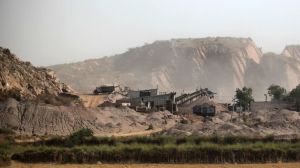When BASIC countries negotiate,we are one voice
Environment and forests minister Jairam Ramesh spoke about the Copenhagen Accord,the BASIC quartet and Indias low-carbon growth strategy in an exclusive interview with MK Venu and KG Narendranath.....
Environment and forests minister Jairam Ramesh spoke about the Copenhagen Accord,the BASIC quartet and Indias low-carbon growth strategy in an exclusive interview with MK Venu and KG Narendranath. The minister expressed concern at Chinas early advances in green technology and emphasized on the need for Indian business to look at the burgeoning sector seriously. Excerpts:
Since the US seems to be inclined to negotiate directly with the BASIC Brazil,South Africa,India,China nations, how valid are the Kyoto Protocol and the UNFCCC framework going to be?
No doubt,the Copenhagen accord that was agreed to by 29 countries,was made possible through the negotiations between President Obama and the four BASIC heads of states. But the UNFCCC continues to remain the fundamental anchor of all climate change negotiations. And the Kyoto Protocol is the only legally binding instrument negotiated on the international arena. The US has not ratified the Protocol and China is not obligated to be a member. In todays context,this is a serious problem as the two countries together account for 45 of global greenhouse gas emissions.
Wont it be easier to apportion the future carbon space if per capita income becomes the parameter?
Absolutely. Graduation is the fundamental principle. Unfortunately,the world is divided into developed countries and developing countries,a very simplistic binary distinction,although the reality is much more complex than that.
Indias voluntary commitment on reduction of emission intensity of GDP by up to 25 seems to take us much closer to the Chinese position. But there is also a feeling that China would move away from this,once it becomes a fully developed country. What will India do then?
China is undoubtedly under great pressure because it is at present the worlds number one greenhouse gas emitter at 23. But the Chinese have started to think of the peaking year between 2025 and 2030. India is part of a different ball game because we are at present at 5 of world greenhouse gas emissions and by 2020,we could reach about 8-9.
Going forward,will our position be closer to the BASIC group for a while?
It is negotiating tactic. We are not on the same boat as China as far as emissions are concerned. But when the BASIC countries negotiate,we are a voice. That is a strength. Note that President Obama came to see us,we did not go to him.
- 014 hours ago
- 0213 hours ago
- 034 hours ago
- 046 hours ago
- 0518 minutes ago































